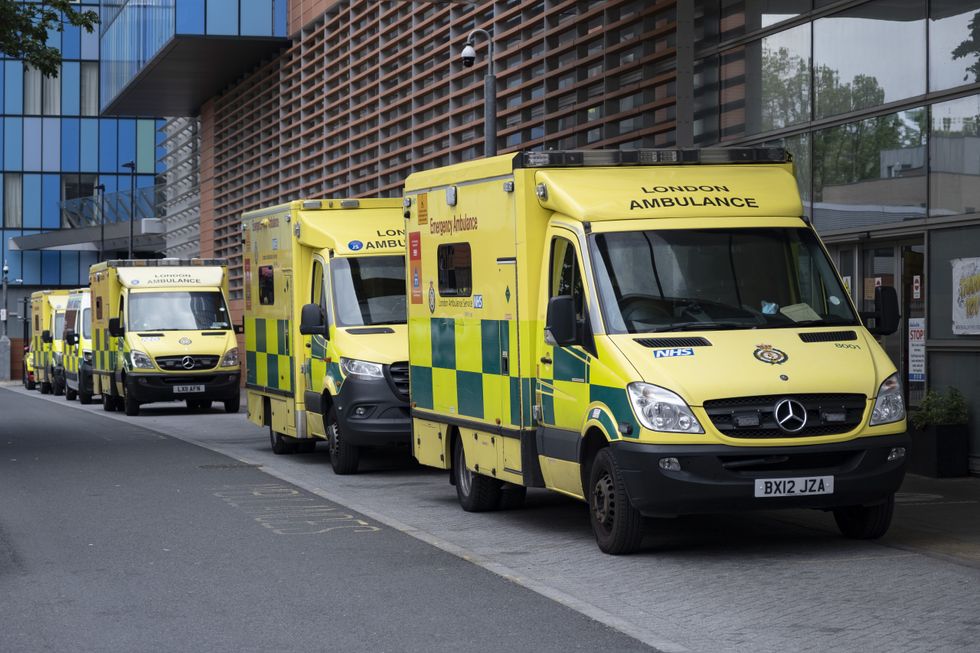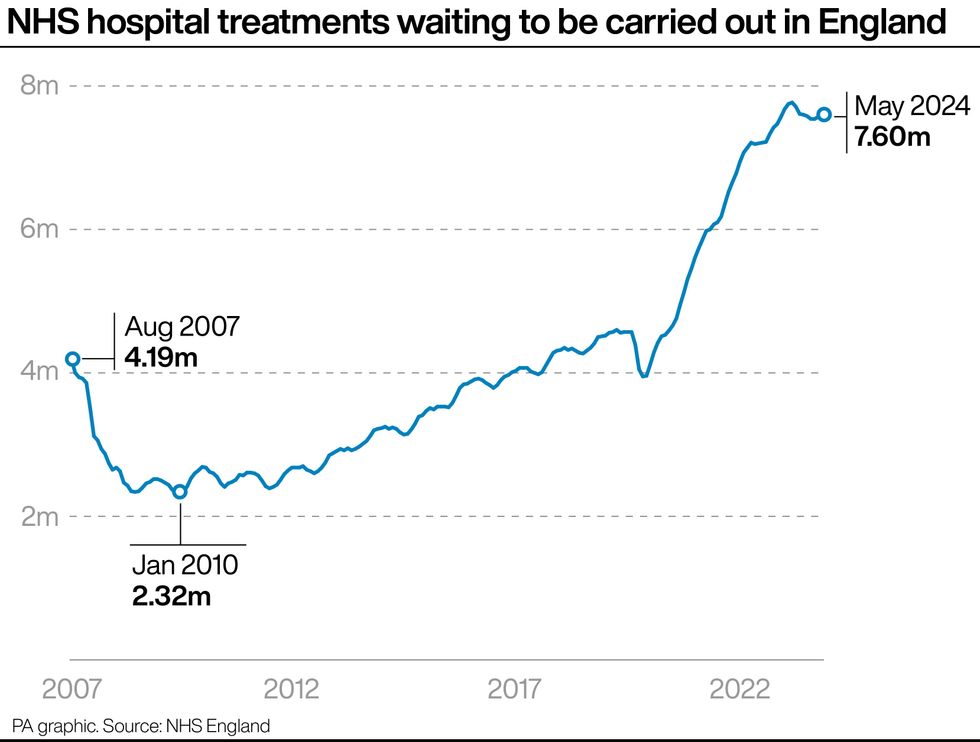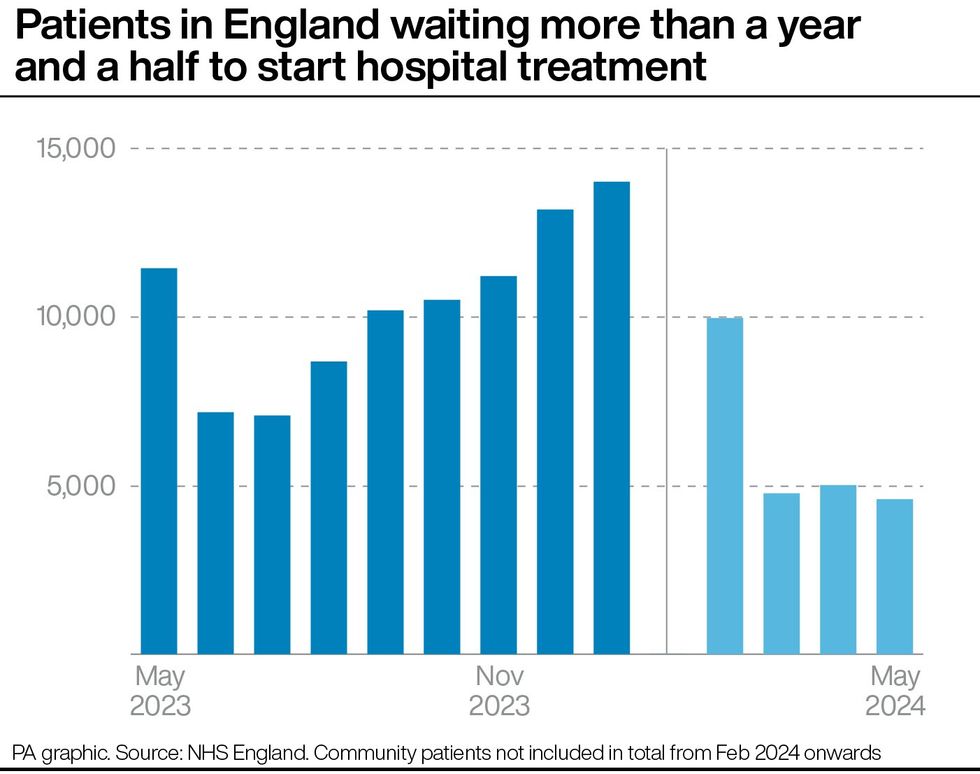The Liberal Democrats have called for an emergency budget for health and care
Getty/ PA
Data from NHS England shows waiting lists have risen for a second consecutive month
Don't Miss
Most Read
Trending on GB News
The waiting list for routine hospital treatment has risen for the second month in a row in England.
The latest NHS performance data for England shows that an estimated 7.60 million treatments were waiting to be carried out at the end of May, relating to 6.38 million patients.
This is up from 7.57 million treatments and 6.33 million patients at the end of April.
The list hit a record high in September 2023 with 7.7 million treatments and 6.50 million patients.

The figures from NHS England show an estimated 7.60 million treatments were waiting to be carried out at the end of May
Getty
The numbers began to drop from September 2023 before showing an increase in both April and May this year.
Over the last 10 years, the list of NHS hospital treatments waiting to be carried out in England has grown, passing three million in 2014, four million in 2017, five million in 2021 and seven million in 2022.
In February 2022, the last full month before the start of the Covid-19 pandemic, the figure stood at 4.57 million.
Patients on NHS lists are facing long waits to receive treatment with some 4,597 patients waiting more than 18 months to start routine treatment at the end of May. This is down from 5,013 in April.
There were 55,955 patients who had been waiting more than 65 weeks to start treatment at the end of May, up from 50,397 in April.

This graph shows the rise of NHS hospital treatments waiting to be carried out in England
PA
The target to eliminate all waits of more than 65 weeks has been changed to September 2024 from March 2024.
The government and NHS England are aiming to eliminate all waits of more than a year by March 2025.
Cancer referrals have also risen over the past month with a total of 76.4 per cent of patients referred for suspected cancer being diagnosed or had cancer ruled out within 28 days.
This is an increase from 73.5 per cent in April and is above the target of 75 per cent.
Furthermore, the number of patients waiting longer than 62 days since an urgent GP referral for suspected cancer was 17,709 in the week ending June 2 2024, up from 17, 356 in the week ending May 5.

This graph shows the number of patients in England waiting more than a year and a half to start hospital treatment
PA
LATEST FROM MEMBERSHIP:
On Thursday, the Liberal Democrats called out again for an emergency budget for health and care.
Health and social care spokesperson for the Lib Dems Daisy Cooper said: “With the NHS treatment waiting list growing again, the case for an Emergency Health and Social Care Budget is clear.
“After years of mismanagement and neglect under the Conservatives, the Labour government now needs to grasp the nettle and give the NHS the support it desperately needs now.
“Far too many patients are facing endless waits just to get the treatment they deserve, often waiting in pain and distress for months, if not years.
“We Liberal Democrats are putting the NHS at the heart of our priorities and will continue to call for bold action, starting with an emergency Health and Social Care Budget without delay.”
Professor Sir Stephen Powis, NHS national medical director, said: “Frontline teams are continuing to work exceptionally hard under significant pressure to provide the best care they can for patients, but everyone recognises that access and waiting times are currently far from what the public have a right to expect.
”Despite the challenges, it is vital that people come forward when they have health concerns - a huge amount of work is going on to diagnose more cancers at an earlier stage, so if you do have worrying symptoms, it’s important to see your GP as soon as possible.
“Everyone working in the health service is committed to working with the government, and with patients and the public, to tackle these challenges, to improve performance and quality in core services, and in the longer term to build an NHS fit for the future.”
The Conservative Party have been contacted for comment.








